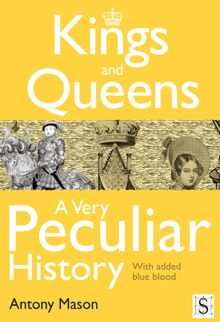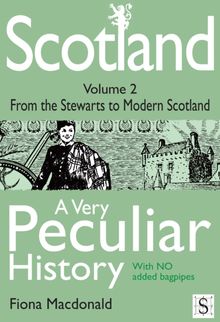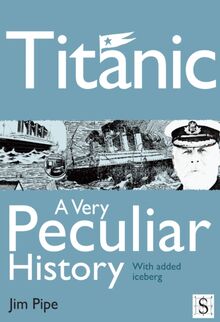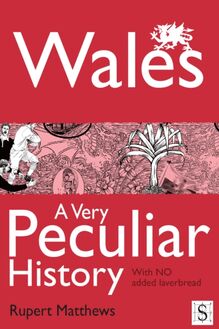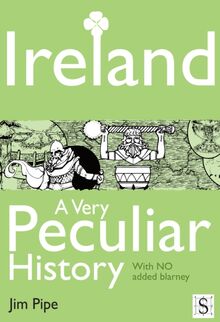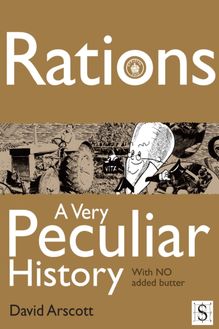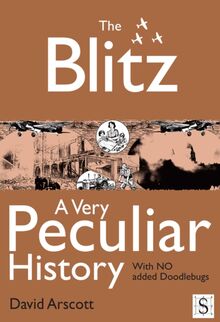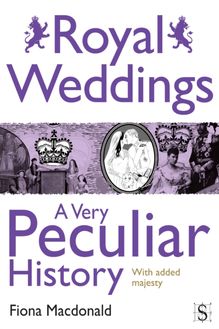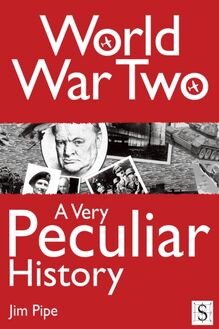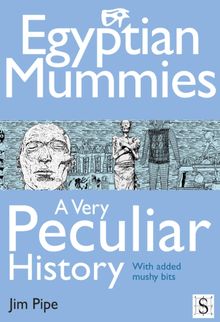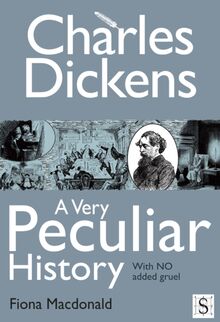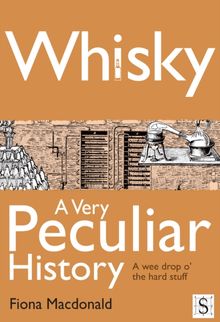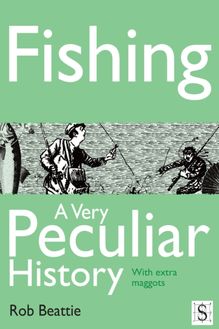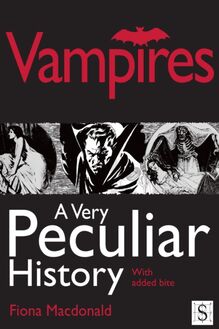-
 Univers
Univers
-
 Ebooks
Ebooks
-
 Livres audio
Livres audio
-
 Presse
Presse
-
 Podcasts
Podcasts
-
 BD
BD
-
 Documents
Documents
-
- Cours
- Révisions
- Ressources pédagogiques
- Sciences de l’éducation
- Manuels scolaires
- Langues
- Travaux de classe
- Annales de BEP
- Etudes supérieures
- Maternelle et primaire
- Fiches de lecture
- Orientation scolaire
- Méthodologie
- Corrigés de devoir
- Annales d’examens et concours
- Annales du bac
- Annales du brevet
- Rapports de stage
La lecture à portée de main
Vous pourrez modifier la taille du texte de cet ouvrage
Découvre YouScribe en t'inscrivant gratuitement
Je m'inscrisDécouvre YouScribe en t'inscrivant gratuitement
Je m'inscrisEn savoir plus
Vous pourrez modifier la taille du texte de cet ouvrage
En savoir plus

Description
Sujets
Informations
| Publié par | Andrews UK |
| Date de parution | 03 février 2012 |
| Nombre de lectures | 0 |
| EAN13 | 9781908759023 |
| Langue | English |
Informations légales : prix de location à la page 0,0300€. Cette information est donnée uniquement à titre indicatif conformément à la législation en vigueur.
Extrait
Title Page
CHRISTMAS, A VERY PECULIAR HISTORY
With lashings of second helpings
Written by
Fiona Macdonald
Created and designed by David Salariya
Publisher Information
First published in Great Britain in MMXII by Book House, an imprint of
The Salariya Book Company Ltd
25 Marlborough Place, Brighton BN1 1UB
www.salariya.com
www.book-house.co.uk
Digital edition converted and distributed in 2012 by
Andrews UK Limited
www.andrewsuk.com
Editor: Jamie Pitman
Assistant editor: Jodie Leyman
© The Salariya Book Company Ltd MMXII
All rights reserved. No part of this publication may be reproduced, stored in or introduced into a retrieval system or transmitted in any form, or by any means (electronic, mechanical, photocopying, recording or otherwise) without the written permission of the publisher. Any person who does any unauthorised act in relation to this publication may be liable to criminal prosecution and civil claims for damages.
Every effort has been made to trace copyright holders. The Salariya Book Company apologises for any omissions and would be pleased, in such cases, to add an acknowledgement in future editions.
Visit our website at
www.book-house.co.uk
or go to
www.salariya.com
for free electronic versions of:
You Wouldn’t Want to be an Egyptian Mummy!
You Wouldn’t Want to be a Roman Gladiator!
You Wouldnt Want to Join Shackleton’s Polar Expedition!
You Wouldn’t Want to Sail on a 19th-Century Whaling Ship!
WARNING: The Salariya Book Company accepts no responsibility for the historical recipes in this book. They are included only for their historical interest and may not be suitable for modern use.
Dedication
To new-borns Finley and William. May they have many Merry Christmases!
F MacD
Quotes
“These poor simple creatures are made after superstitious festivals, after unholy holidays… I have known some that have preferred Christmas Day before the Lord’s Day [Sunday].”
Puritan Member of Parliament, speaking about English men and women, 1644.
“Bah! Humbug!… Every idiot who goes about with ‘Merry Christmas’ on his lips, should be boiled with his own pudding, and buried with a stake of holly through his heart.”
Ebenezer Scrooge, in Charles Dickens’s story, A Christmas Carol, 1843.
“Go Christmas, Go Hannukah,
Go Kwanzaa, Go Solstice…
Go Christmas, go Hanukkah,
go whatever holiday you Wannakuh!”
Advertising slogan by a major clothing retailer, USA, 2009. It was withdrawn after protests.
Introduction
Christmas! ‘It’s the most wonderful time of the year…’ or so the 1963 hit song confidently informed listeners. The title of a later Christmas compilation album,‘What a Night!’ (issued 2008), sounded rather less certain – but perhaps the double meaning was unintentional.
Assuming that Christmas IS indeed wonderful, this book will ask why so many people worldwide still feel that it is so special. It will also investigate how today’s frantic festive combination of family, food and frenzied shopping – to say nothing of novelty musical numbers and mawkish movies – came to be linked to a religious ritual remembering the birth of an apparently fatherless baby to a poor, homeless refugee.
Time to give…
Why do we like Christmas? Is it just because it’s a holiday – a welcome break for anything between one day and a fortnight away from the pressures of work or school? Is it – in the northern hemisphere at least – a warm and brightly-shining spot in a cold and gloomy season? Is it because of all the presents? Not just because we like getting them, but because it’s also good to give – to our friends, our family and to charities. In the USA, for example, over half the donations to good causes are made in the weeks before Christmas Day.
...and to consume
Is Christmas so much fun because we enjoy the food, the drink, the decorations and the parties? Because it’s nice to get Christmas cards from distant friends, and send our own Christmas greetings? Or do we like lighting candles, singing carols, watching Nativity plays and waiting for Santa Claus? Is Christmas simply a great occasion for shops and businesses to make lots of money? Or is it, as many people of faith believe, a time of hope and consolation?
Joy to the world!
Christmas has a long history – stretching back, confusingly, for centuries before baby Jesus Christ was born. The fact that it has survived so long suggests that it fills an important gap in our lives. A world without Christmas would be miserable. If Christmas did not exist, we would have to invent it!
Welcome Yule!
‘Welcome be ye that are here,
Welcome all and make good cheer;
Welcome all, another year,
Welcome Yule!’
English carol, words first written down around AD 1450
SANTA SAYS: Ho ho ho, I’ll be your guide through the history of Christmas today! After all, who better to show you around?! You’ll meet my friend the Cherub soon... I wonder where he’s got to? In the meantime, come and climb on my sleigh! Ride with me as we travel 5,000 years back in time, to find out how Christmas began.
CHAPTER ONE: Midwinter Madness
Brrrrr! It’s the middle of winter here in the frosty northern hemisphere. Cold, dark and dangerous – the very dead of the year. The ground is frozen hard; the streams are covered with ice. There’s no green grass to feed the cattle; fruits and berries have vanished from the leafless trees. Wild creatures have migrated south, or hidden themselves to hibernate. Fish don’t leap in the rivers. No birds sing.
Each day, there is less light. The nights grow longer and colder. As you huddle under your smelly goatskin rug, you’re hungry and shivering. Have you stored enough grain? Have you cut enough firewood? And will something fierce and nasty from the forests prowl out of the darkness to eat you?
Just as bad, the dim grey days are making you very miserable. You’re tired, slow, clumsy, depressed. You feel vaguely ill, and horribly lazy.
Why this winter gloom? What’s happening to your world? And why – in every way – has the Sun stopped shining?
SANTA: Don’t worry, my friend! Be happy! It will soon be the SOLSTICE….
Turning world
Every year, the Earth orbits the Sun, spinning on its own axis. But because the Earth is tilted as it travels, sunlight does not strike its surface evenly. Instead, the amount of light reaching places on the Earth varies from day to day. This is why days can be longer or shorter at different times of the year. The difference in daylight hours from season to season increases with distance North or South from the Equator.
The day the Sun stands still
Twice a year, at Midsummer and Midwinter, there are moments in time when the top and bottom of the tilting Earth get closest to, or furthest away from, the Sun. These moments are known as ‘solstices’; they happen at the longest (Midsummer) and shortest (Midwinter) days.
To a person standing on the ground, the Earth’s orbit and tilted angle (or ‘axial tilt’) make it look as if the Sun is climbing higher or sinking lower in the sky, day by day. And, at each solstice, it appears that the Sun stands still for a while, and then changes direction.
Our word ‘solstice’ was invented by the Romans, over 2000 years ago. Like many past peoples, they observed how the Sun seemed to stop in the sky at Midsummer and Midwinter, and gave this phenomenon a name. They combined two existing words in Latin, their language, to create a new one:
‘sol’ (the Sun) + ‘sistere’
(to stay still) = solstice!
SANTA: So you see, my friend, there’s no cause for despair! The Sun’s not going to disappear! And after the solstice it will soon shine more strongly again. The days will get longer, the weather will grow warmer. The world will be reborn, believe me!
If you want further proof, you can visit monuments based on careful observations of the solstices. They’ll show you how the Sun always rises, even at the darkest time of the year.
Newgrange
At Newgrange tomb in Ireland, constructed around 3,200 BC, there is a chamber built to catch a beam of light on the Winter Solstice. The sunbeam illuminates the floor of the chamber for 17 minutes before disappearing until next year.
Still not convinced? Then what what you need is light, warmth – and action. They will make you more cheerful!
Build a big bonfire! Hold a huge feast, or be like the the Romans, and throw a splendid party to celebrate the solstice!
SANTA: I LOVE a party! Hop back on to my sleigh. We’re off to Ancient Rome!
Senator M Cornelius Galba Requests the Pleasure of your Company at a PUBLIC, ALL-NIGHT, LAMP-LIT feast for...
SATURNALIA
(17 – 19 December)
– Open to all!
– House, tables and couches will be decorated with evergreen leaves.
– Starts after offerings at Saturn’s temple (that’s decorated, too!)
– Followed by dancing in disguise through the streets – if you dare!
Please bring a present: fruit, wine, candles and incense are all most acceptable.
Guests planning to pray at Saturn’s temple should bring a wax doll or clay mask as well.
REMEMBER!
Slaves will be reclining at some tables, with their masters serving them. That’s the tradition! You have been warned…
Dress: Casual. Pointed party hats.
New life
Saturn was an ancient Roman god of seeds and fertility. In mil
-
 Univers
Univers
-
 Ebooks
Ebooks
-
 Livres audio
Livres audio
-
 Presse
Presse
-
 Podcasts
Podcasts
-
 BD
BD
-
 Documents
Documents
-
Jeunesse
-
Littérature
-
Ressources professionnelles
-
Santé et bien-être
-
Savoirs
-
Education
-
Loisirs et hobbies
-
Art, musique et cinéma
-
Actualité et débat de société
-
Jeunesse
-
Littérature
-
Ressources professionnelles
-
Santé et bien-être
-
Savoirs
-
Education
-
Loisirs et hobbies
-
Art, musique et cinéma
-
Actualité et débat de société
-
Actualités
-
Lifestyle
-
Presse jeunesse
-
Presse professionnelle
-
Pratique
-
Presse sportive
-
Presse internationale
-
Culture & Médias
-
Action et Aventures
-
Science-fiction et Fantasy
-
Société
-
Jeunesse
-
Littérature
-
Ressources professionnelles
-
Santé et bien-être
-
Savoirs
-
Education
-
Loisirs et hobbies
-
Art, musique et cinéma
-
Actualité et débat de société
- Cours
- Révisions
- Ressources pédagogiques
- Sciences de l’éducation
- Manuels scolaires
- Langues
- Travaux de classe
- Annales de BEP
- Etudes supérieures
- Maternelle et primaire
- Fiches de lecture
- Orientation scolaire
- Méthodologie
- Corrigés de devoir
- Annales d’examens et concours
- Annales du bac
- Annales du brevet
- Rapports de stage
